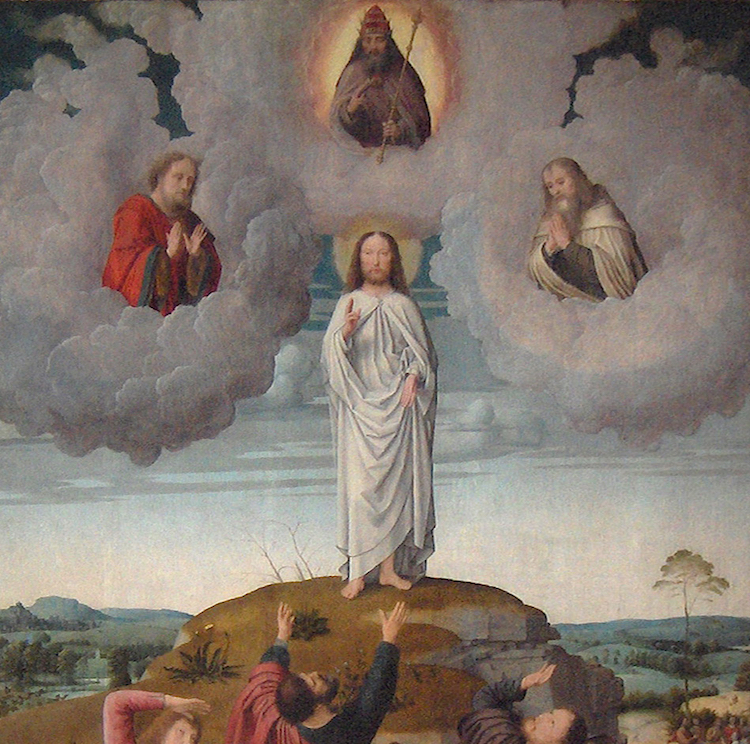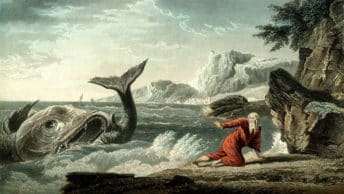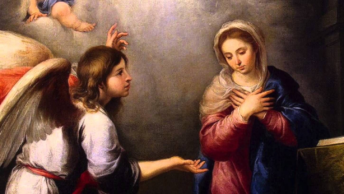An enviable aspect of childhood is to be allowed to take refuge in a world of dreams, make-believes, and incredible feats made easy. We, grownups, let children take refuge in it, now and then, for two reasons: we would like to return to that magic world ourselves; and we would let our kids take flight there rather than being scarred and traumatized by an early brush with the real world in which we are bound to live.
The cruelty of the real world can be devastating. Our world, the world of grownups, reserves many unpleasant surprises. At times, unceremoniously, we can be thrust into surreal situations. We, then, would find ourselves disoriented, numb, enveloped in darkness; trudging hesitantly through thick clouds.
In the Book of Genesis (15:5-12, 17-18), we should recall that Abram’s world, too, had become filled with shame and hopelessness. Sarah is way past her childbearing age, and he knows that old age is gnawing away at his virility as well. Thus, when God intervenes with the incredible promise of descendants as numerous as the stars in the sky above, Abram is overwhelmed; his very breath of life is snuffed out of his chest, so to speak.
He falls into a trance and is shrouded by a terrifying darkness because this new, quasi-unknown God is exacting from him a demand that calls for trusting in Him to deliver something totally impossible not only for mighty men but also for gods.
Why does Abram fall into this scary trance?
Because, according to his nomadic culture, were he to falter in his belief that God would do the impossible, against all odds, he has just agreed that he would wind up split in half just as he has done to the heifer, the ram, the turtledove and the pigeon between which the divine flaming torch passed.
Similarly, Peter, John and James (Luke 9:28-36) find themselves overwhelmed, frightened, thrust into the surreal world of the transfigured Christ, enveloped by a thick could that forces intense fright back into their hearts.
Just over a couple of years earlier, they had taken the biggest risk of their life. They had left family, friends, boats, all their possessions behind and joined Jesus, the prophet from Nazareth, who had lit in them the prospect of a much better future. Yet now, on mount Tabor, he is talking to Moses and Elijah about his painful, bloody exodus, marked by shame, torture and the cruelest type of death on a cross.
What to make of this: on the one side Jesus is transfigured, glorious, a real winner. But, on the other, that strange conversation about his exodus rings of ominous and scary signs.
We know that, from time to time, a cloud of thick darkness envelopes people of all walks of life, of all financial brackets, of all faiths. Perhaps a similar cloud has already enveloped some of us as well.
I think that the readings for the Second Sunday of Lent are designed to set us on solid ground and to prepare us to handle the clouds and the thick darkness that life has in store in our future.
The first reassuring element is found in the fact that our darkness will not be nearly as thick as the one that enveloped Abram. Deep down we already know that. We know that, in our life, the way of the cross is less lonely, less hard, less frightening because Jesus walks ahead of us.
Jesus has taken the place of that heifer, ram, turtledove and pigeon split in half and consumed by the fire from above. Hence, his exodus, our exodus, will have the most glorious ending. The cross of our Savior will dispel the thickest darkness during the Easter Vigil, and beyond.
Jesus’ transfiguration prepared Peter, John and James for the scandal of his disfiguration on the cross, during the darkest moment of his life. Similarly, God’s word assures us, today, that our inevitable disfiguration, caused by our human miseries, sins, fears and the senseless cruelty of a few, will be followed by our transfiguration in our Lord Jesus.
Yet, there is a great danger looming beneath each of life’s events.
In their ominous magnitude they could cause us to lose sight of Jesus’ cross: those who try to flee the darkness enveloping them with reliance on their own resources are called by Paul: enemies of the cross of Christ. At first, we might deem Paul’s reaction excessive. Why was he brought to tears just because some Christians were relying on dietary laws and on circumcision, instead of relying on the cross of Christ?
In his Letter to the Philippians (3:17-4:1), St. Paul accuses them of having their stomach as God (eating kosher food) and their circumcised genitalia (shame) as their glory. Isn’t Paul getting all bent out of shape for nothing?
Paul was speaking from experience: he had been circumcised on the eighth day; he had eaten kosher food all his life. Yet, he knew with unshakeable certainty that it was Christ crucified who had seen him through the darkest moments of his life.
My dear friends in Christ, we can easily become the enemies of Jesus’ cross if we forget the infinity of God’s love graphically visible on that cross and we begin to rely on whatever looks humanly promising and encouraging, even on something as good as our favorite prayers, our religious practices, our human resources, the latest fad, the newest technique toward wholesomeness to get us through the darkest moments of life.
If we respect God’s sovereignty, we should heed Paul’s entreaty:
We shall leave this Eucharistic Celebration, this representation of the Sacrifice of the cross, with the firmest conviction that we shall weather our disfiguration; we shall withstand the thickest darkness and walk toward our transfiguration, only by living each moment in the comforting knowledge that, in the cross of Jesus, God has offered us the ultimate, unshakeable evidence both of His infinite love and of our future glory.









The turtle dove and the pigeon were not cut in two???
Why is this???
Kind regards,
Mickey